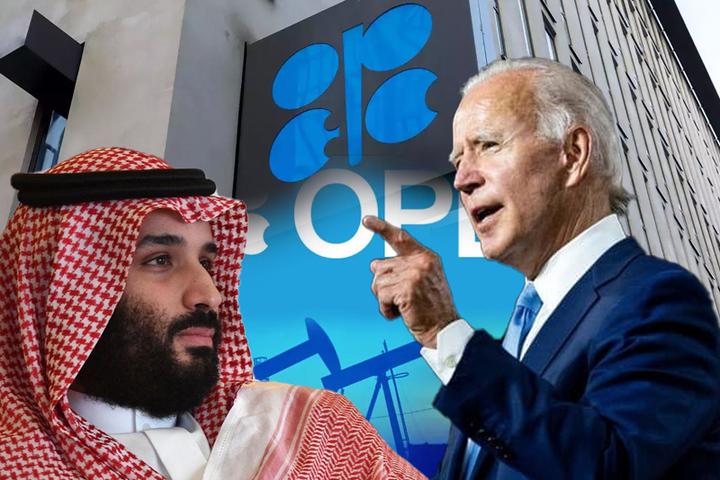
Saudi Arabia, United States clash over reason for OPEC+ oil cut
Saudi Arabia rejected as “not based on facts” criticism of an OPEC+ agreement to cut its oil output target last week despite US objections, and stated on Thursday, October 13, that Washington’s desire to delay the cut by one month would have had negative economic effects.
The White House pushed back against this claim on Thursday, stating that it presented the Saudis with an analysis indicating that the cuts could harm the global economy and alleging that the Saudis exerted pressure on other members of the Organization of the Petroleum Exporting Countries in order to influence their vote. Both nations’ officials were due to discuss the matter shortly.
The back-and-forth has added to an already chilly time of ties between the two countries, which have had a decades-long energy-for-security agreement.
OPEC+, the producer group consisting of OPEC and its allies, including Russia, reduced its production target by 2 million barrels per day last week, despite weeks of opposition from US officials.
The decision was made despite the fact that fuel markets remain tight and stockpiles in key economies are lower than when OPEC previously reduced supply.
The OPEC+ decrease has generated fears in Washington about the likelihood of increased gasoline prices before of the US midterm elections in November, when the Democrats are attempting to keep control of the House and Senate.
Earlier this week, US President Joe Biden vowed that the move by OPEC+ would have “consequences” for US relations with Saudi Arabia.
When asked about the situation on Thursday during a trip to Los Angeles, Biden told reporters, “We’re about to talk to them.”
Keep Reading
The OPEC+ agreement was reached through consensus, took supply and demand into account, and aimed to reduce market volatility, according to a statement released by the Saudi foreign ministry on Thursday.
The Saudi foreign ministry statement refers to conversations with the United States before to the OPEC+ summit on October 5 in which the United States requested a one-month deferral of the cutbacks.
“The kingdom underlined through its ongoing conversations with the US administration that all economic calculations indicate that postponing the OPEC+ decision by a month, as indicated, would have had negative economic implications,” read a statement from the Saudi foreign ministry.
The United States accused Saudi Arabia of kowtowing to Moscow, which objected to a restriction on the price of Russian oil imposed by the West in reaction to Russia’s invasion of Ukraine.
“We presented Saudi Arabia with analysis demonstrating that there was no market basis to cut production targets, and that they could easily wait until the next OPEC meeting to see how things developed,” said White House spokesman Jack Kirby, adding that other OPEC nations told the United States that they felt “pressured” to support the Saudi decision.
The Saudi foreign ministry statement emphasized the “strictly economic context” of the oil cut, citing an unnamed official. OPEC, the US Department of Energy, and the International Energy Agency (IEA) have all lowered their demand predictions for 2023 this week in response to the global decline in oil consumption.
Nonetheless, the IEA noted on Thursday that OPEC’s move could damage demand, stating that “increased oil prices may be the final straw for a global economy already on the verge of recession.”
In its statement, Saudi Arabia referred to its relationship with the United States as “strategic” and emphasized the need of mutual respect. The Gulf Cooperation Council issued a statement commending Saudi Arabia’s efforts to shield the market from instability.
In research published this week, Goldman Sachs stated that in the last 25 years, OPEC has never lowered production when stockpiles in Organisation for Economic Co-operation and Development (OECD) countries — 38 of the world’s wealthiest economies – were so low. Currently, OECD stocks are 8% below their five-year average. Nonetheless, they observed that OPEC decreased output during periods of poor demand.




